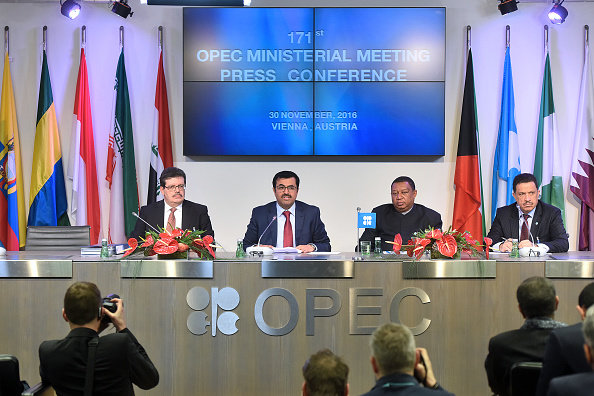OPEC deal: Iran turns the tables on Saudis

After months of talks and rounds of meetings, the Organization of the Petroleum Exporting Countries (OPEC) finally sealed a deal on November 30 for a production cut, marking a turning point in the organization’s history.
A deal which everyone believed had a very little chance of success, is now done and the organization agreed to cut production by about 1.2 million barrels per day (bpd), or about 4.5 percent of current production, to 32.5 million bpd.
Two months ago in Algiers an agreement was outlined based on which the OPEC and non-members were obliged to cut their productions in order to stabilize the market. The idea received waves of skepticism from the very first moments.
With Iran’s tensions with its arch-rival Saudi Arabia at highest and with Russia not in accordance with the organization regarding any cuts in its production the chances of the real implementation of the agreed looked quite dim.
rivals duel
On one hand, Saudi Arabia with a long history of having the final say in the organization suddenly saw its position threatened by Iran, and on the other hand, unshackling from years of sanctions imposed by the West, Iran did not accept another imposition on its production level.
The kingdom which was trying to maintain authority and saving its shattering economy at the same time, insisted on an old offer, to cut production only if Iran freezes at current levels.
Finding their proposal refused by Iran, Saudis played the “threat” card in an OPEC’s ministers gathering, hinting that they might walk away from the negotiations. They expected a desired response from Iran but apparently Tehran was willing to take the risk; the country did not withdraw its position.
And finally to the world’s amazement, the kingdom surrendered to Iran’s will. In OPEC’s 171st meeting, Saudi Arabia agreed to fully adhere to ‘Algiers Accord’.
Iran not only was exempted from the cuts, the country even managed to win the right to increase its production by 90,000 barrels per day, while Saudis agreed to cut 500,000 barrels from their current production level.
Turning tables
But what was the real story behind this outcome?
A few days before the November meeting, Algerian Oil Minister Noureddine Buterfa visited Iran to convince the country regarding a 1.2 million bpd cut, a proposal for a 4.5 percent cut for each country was handed to Iranian Oil Minister Bijan Namdar Zanganeh during this visit.
Meanwhile, Saudi Arabia whose economy was under pressure from low oil prices and faced the fact that Iran had the upper hand in the current situation, saw itself with no choice but to go with the flow.
Of course, Russia played a significant role mediating the accord to the point that they even agreed to cut their production by 300,000 bpd to encourage others.
Accordingly, Iran agreed to the terms proposed by Algiers under the condition that the cut should be applied to its highest production level which was recorded in 2015.
The country argued since all OPEC members were producing at their highest levels at the time of the discussions, so Iran’s cut must be calculated for its highest production rate. Iran had recorded its highest production level of 3.975 million bpd in 2015 which left the organization with no choice but to agree with the proposal and letting the country to even raise its current production level by 90,000 bpd in order to 4.5 percent cut to be applied fairly to all countries.
Iran turned the tables on Saudi Arabia and unlike all other OPEC members the country managed not only to keep its current production level but also to raise it. The Iranian oil minister believes that this success has been a result of a healthy diplomacy, when all members put economic interests before raising controversial political issues.
Based on the agreement, Iran's average crude production level for the first half of 2017 will be 3.797 million barrels and according to the country’s oil minister, $10 billion will be added to Iran's oil income.
EF/MG

Leave a Comment